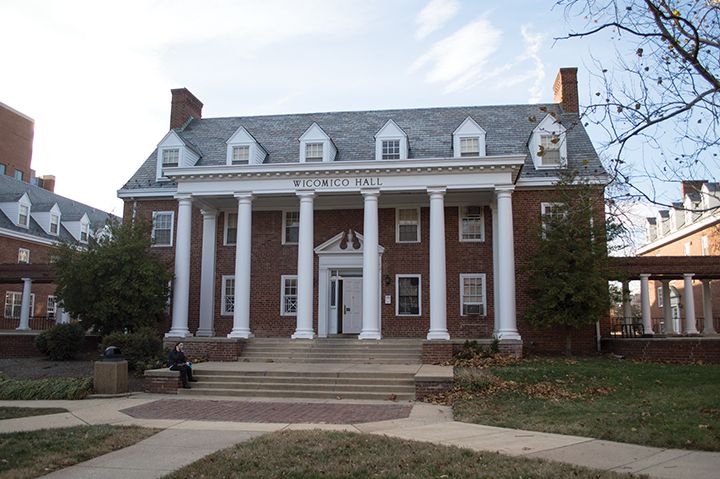Carroll, Caroline and Wicomico halls might only have double and single dorm rooms available next year, Resident Life officials said at the RHA’s weekly Tuesday meeting.
The department “get[s] a lot of complaints” about these dorms, said Resident Life director Deborah Grandner. The dorms — which the department calls “historic district” buildings due to their age and lack of air conditioning — pushed residents out their doors in September to Prince Frederick Hall, where students could rent fans and sleep in lounges during the heat wave.
“I couldn’t stand the thought of opening again with it the way that [Carroll, Caroline and Wicomico are],” Grandner said. “We are working really closely right now trying to work out arrangements for next year so we don’t have overcrowding.”
In the fall semester, the university used 42 lounges as dorm rooms after it overbooked campus housing, compared to just three in 2014 and one in 2016. Over the summer, the department offered a $750 incentive for the first 50 students to cancel on-campus housing contracts, but only 15 took the deal.
[Read more: UMD will no longer bar students from their dorms after mental health hospital stays]
While the department has a strategic plan preparing for the three dorms’ closures, they’re “expensive building[s] to keep open,” and the shift in room population would result in a loss of revenue, Grandner said.
To make the change, both Resident Life and Dining Services would have to withhold money to accommodate for the difference.
So, for the first time in a dozen years, Dining Services is set to pull half a million dollars from a balance that Dining Services director Colleen Wright-Riva equated to a “savings account.” The funds act as a $1 million cushion in emergencies, such as paying employees overtime in campus closures due to inclement weather, like last week when snow closed campus early, she said.
“When Carroll, Caroline and Wicomico go down in that account, dining goes down,” Wright-Riva said. “When they have 152 less beds, Dining Services is going to have 722,304 less dollars.”
[Read more: In the fall, UMD students started living in lounges. Now, they have to leave.]
Since the funds are specifically kept for emergencies, there will be no impact on other Dining Services budgeting, Wright-Riva said.
Despite the expected budget drop, Grandner also said the department plans to put $30,000 toward its multicultural advocate program — a program aimed to foster conversations about diversity and inclusion within dorms — to pay six students $12 an hour for 12 hours of work a week. The program saw little turnout in its first semester in the fall.
“It seems like every year, the percent [increase of the budget proposals] keeps going up. Is there an end in sight to any of these increases?” Residence Hall Association Vice President Ben Reichard asked.
Grandner noted the high expenses that come with aging buildings.
“Our difficulty with housing is in part because our buildings are older,” Grandner replied. “We all really try to keep our budgets down.”



